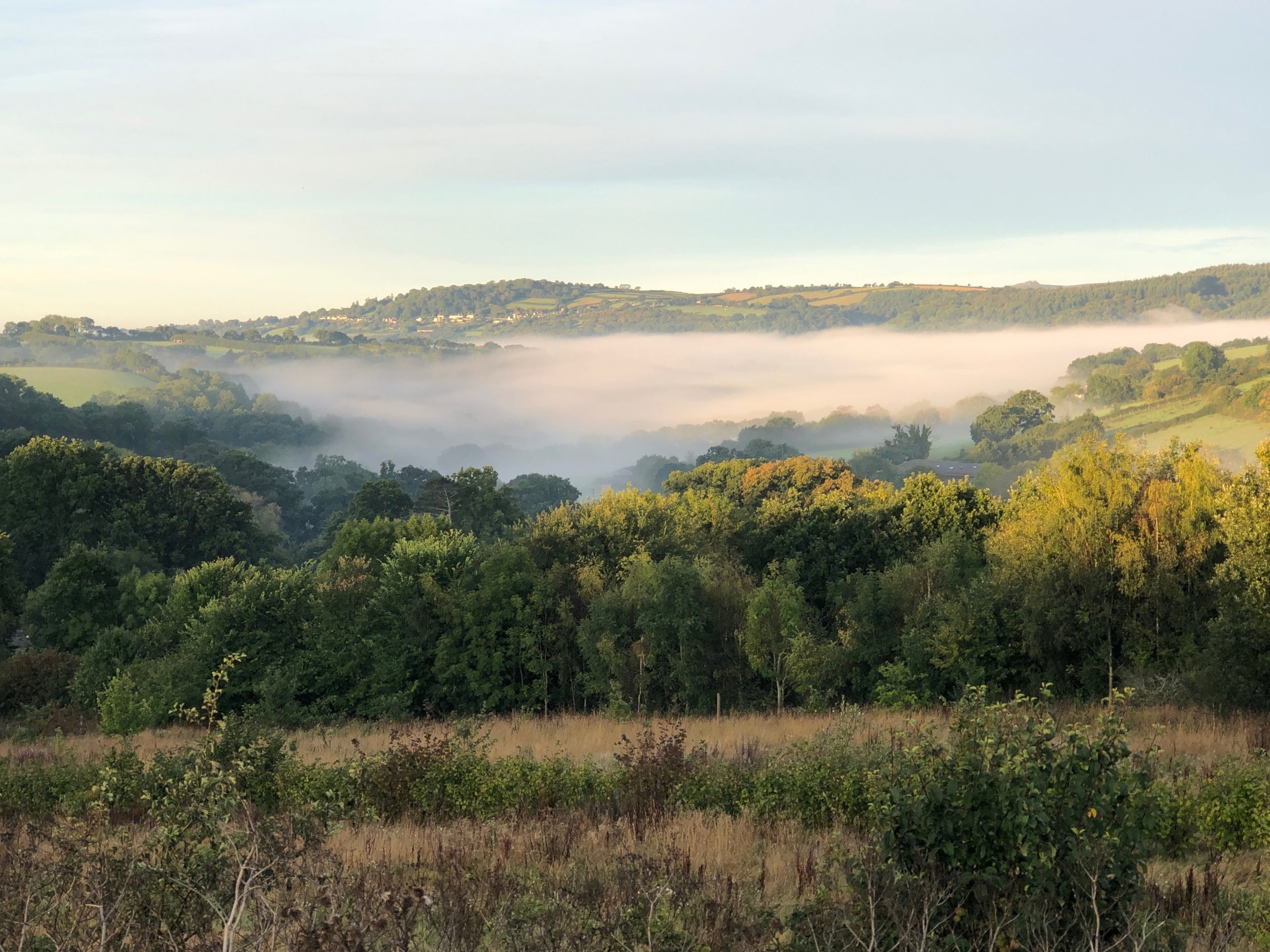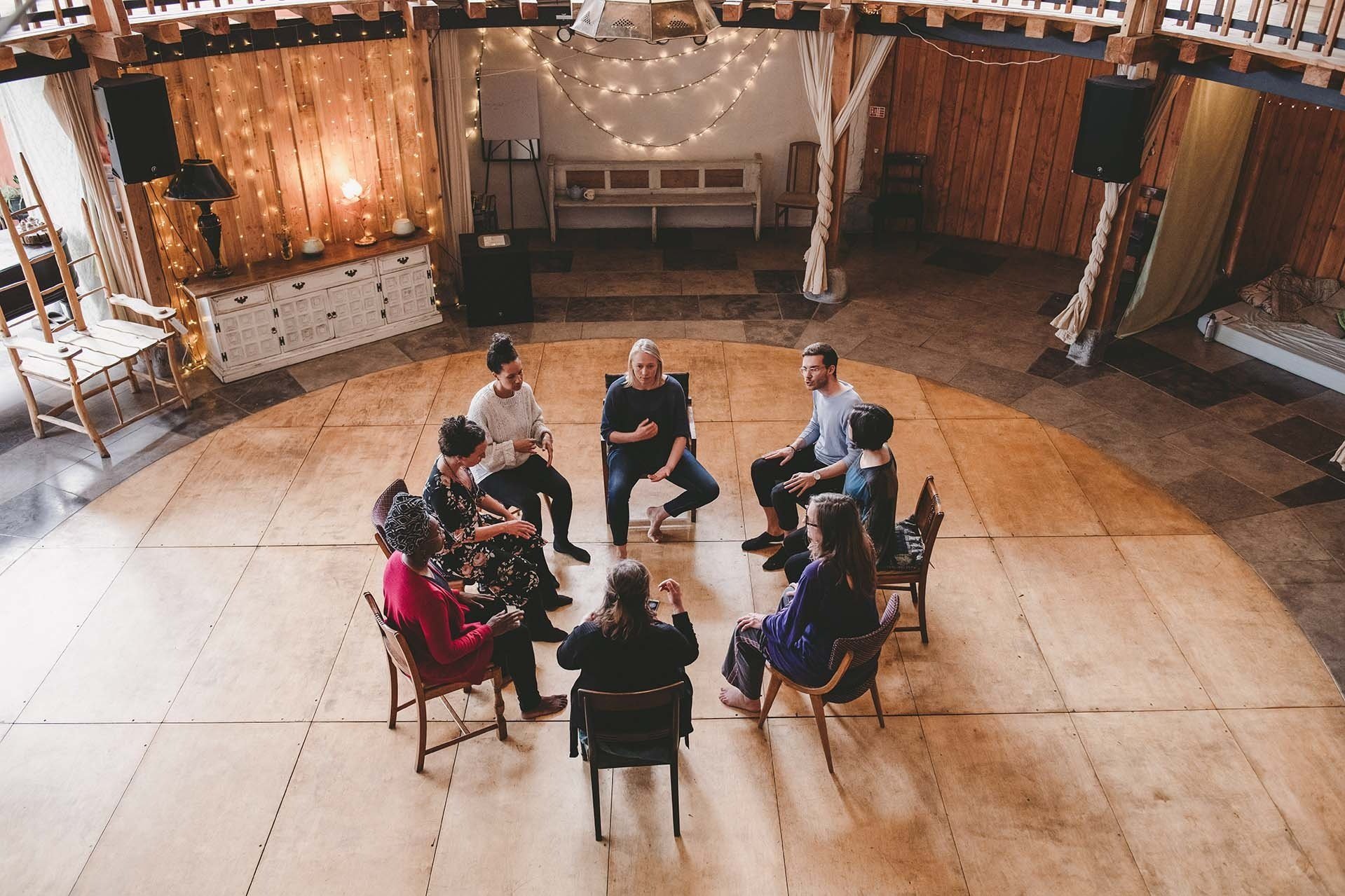
Chops for Singers
Learn music theory through the voice, ear and body, to boost your vocal musicianship.
“Chops” is word from American Jazz which refers to your applied musical ability: how you are able to use rhythm, harmony, melody, technique in increasingly musically sophisticated ways. The more chops we have, often, the more rich, musical and satisfying our improvisation can be.
Chops means music theory, but not like we may have learned in school. Perhaps you did your grade 5 music theory; pencil in a special little book. Is any of that available to you when you improvise? How did Stevie Wonder learn all that fabulous musicianship as a blind person? Notation wasn’t available to him.
It’s possible to learn music through the ear, voice and body. When we learn music theory this way - aurally - it gradually accumulates into our embodied unconscious competence, making it available to us when we jam.

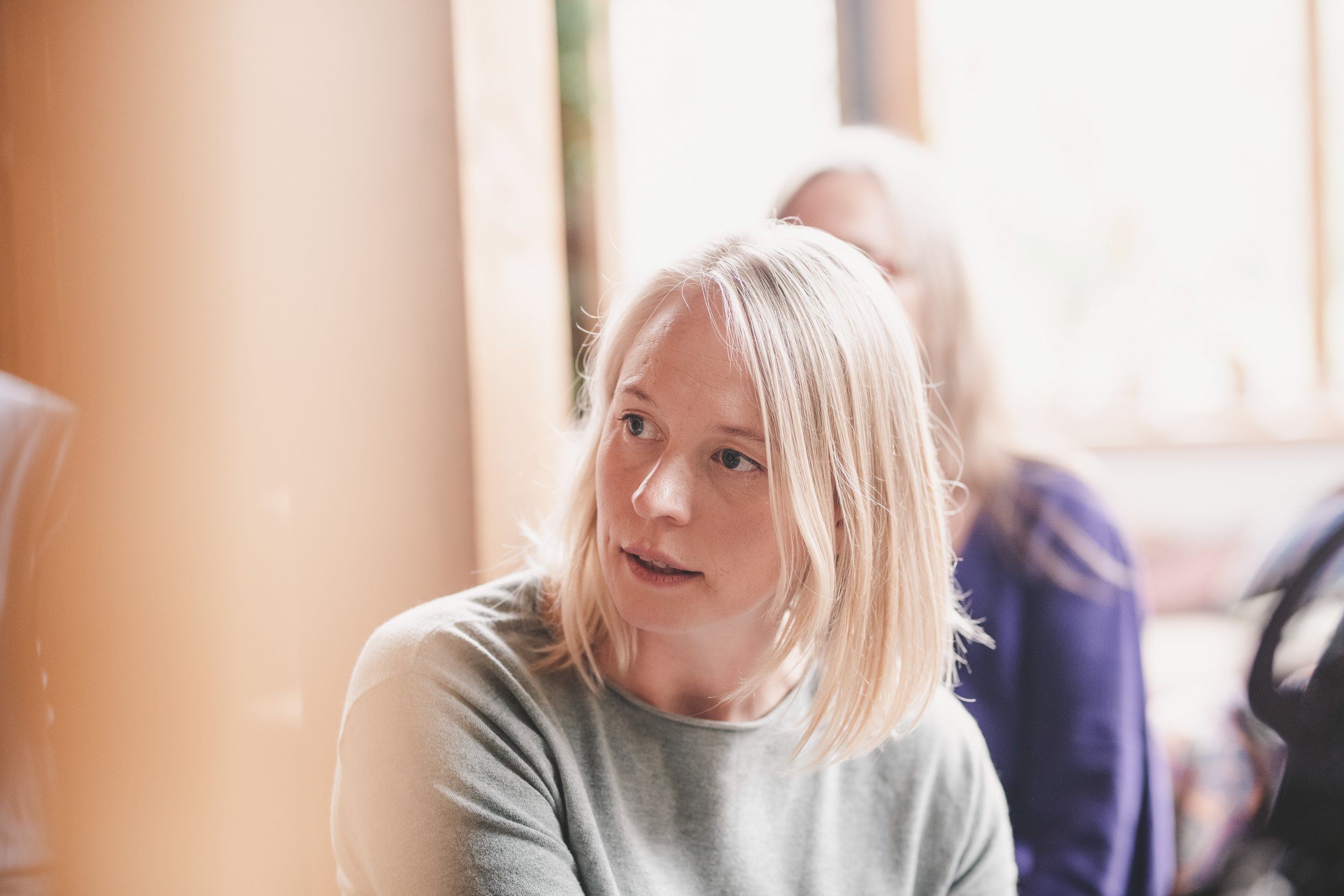



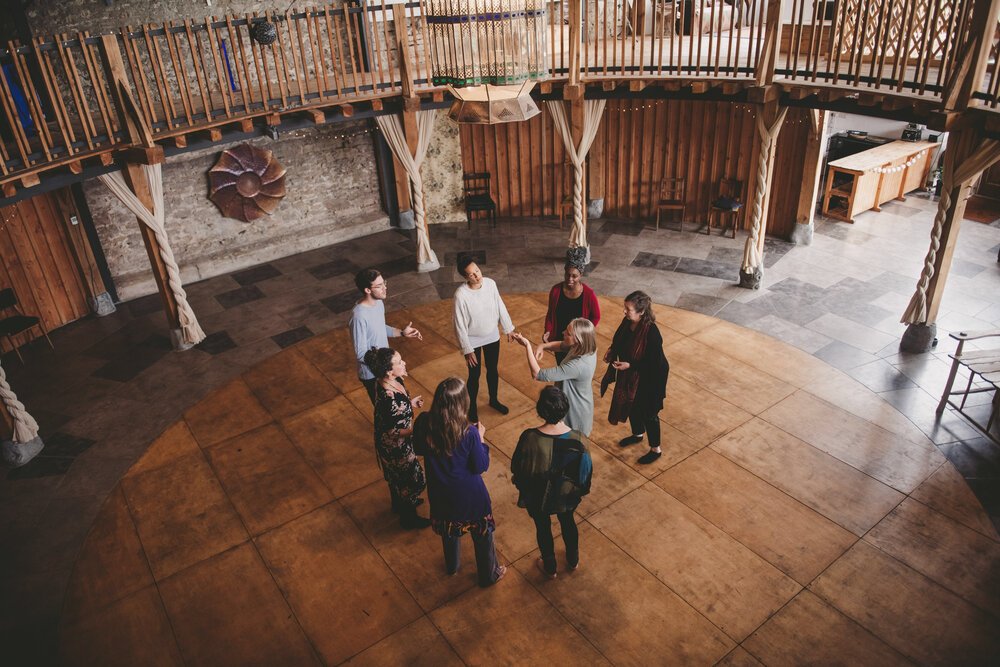
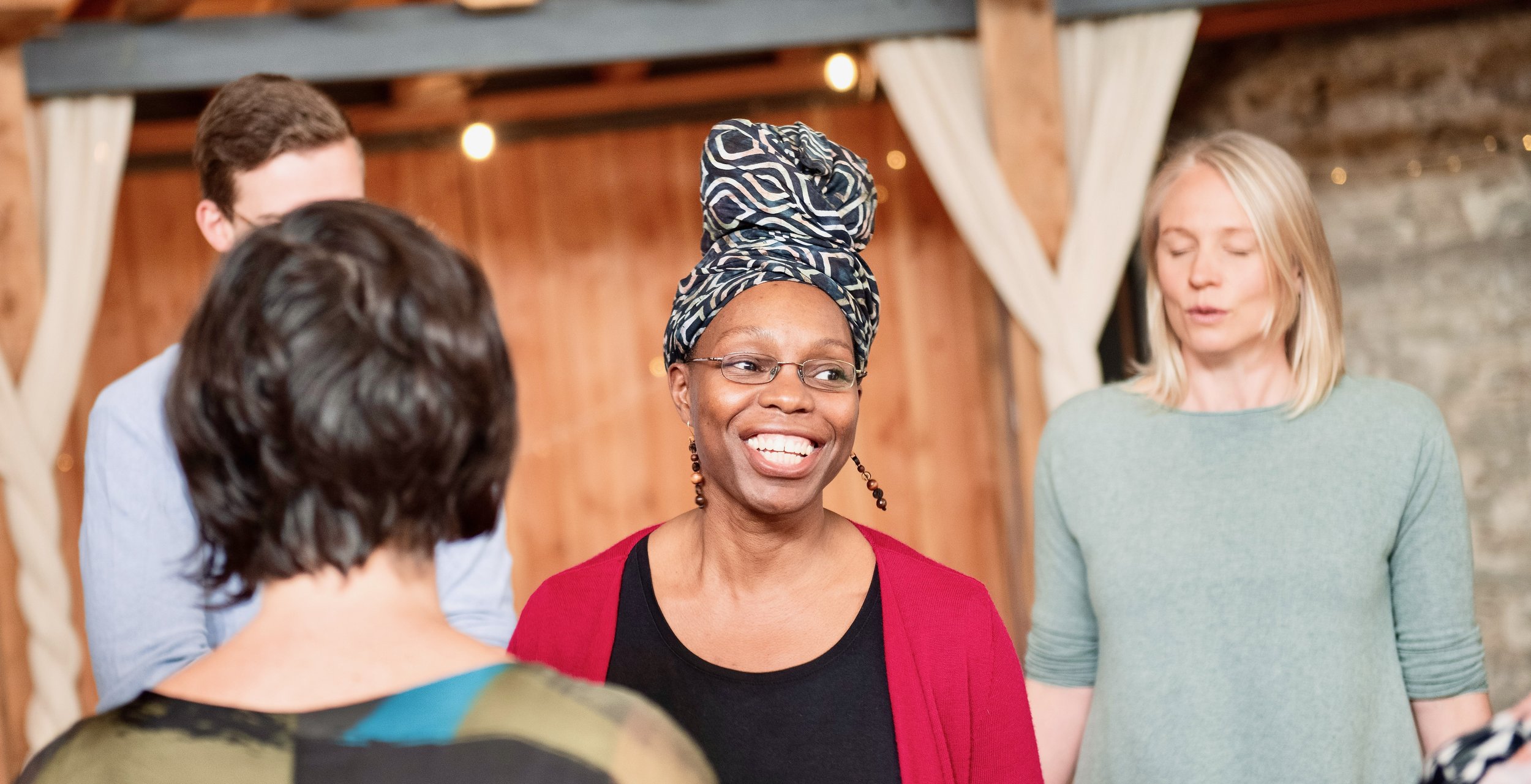
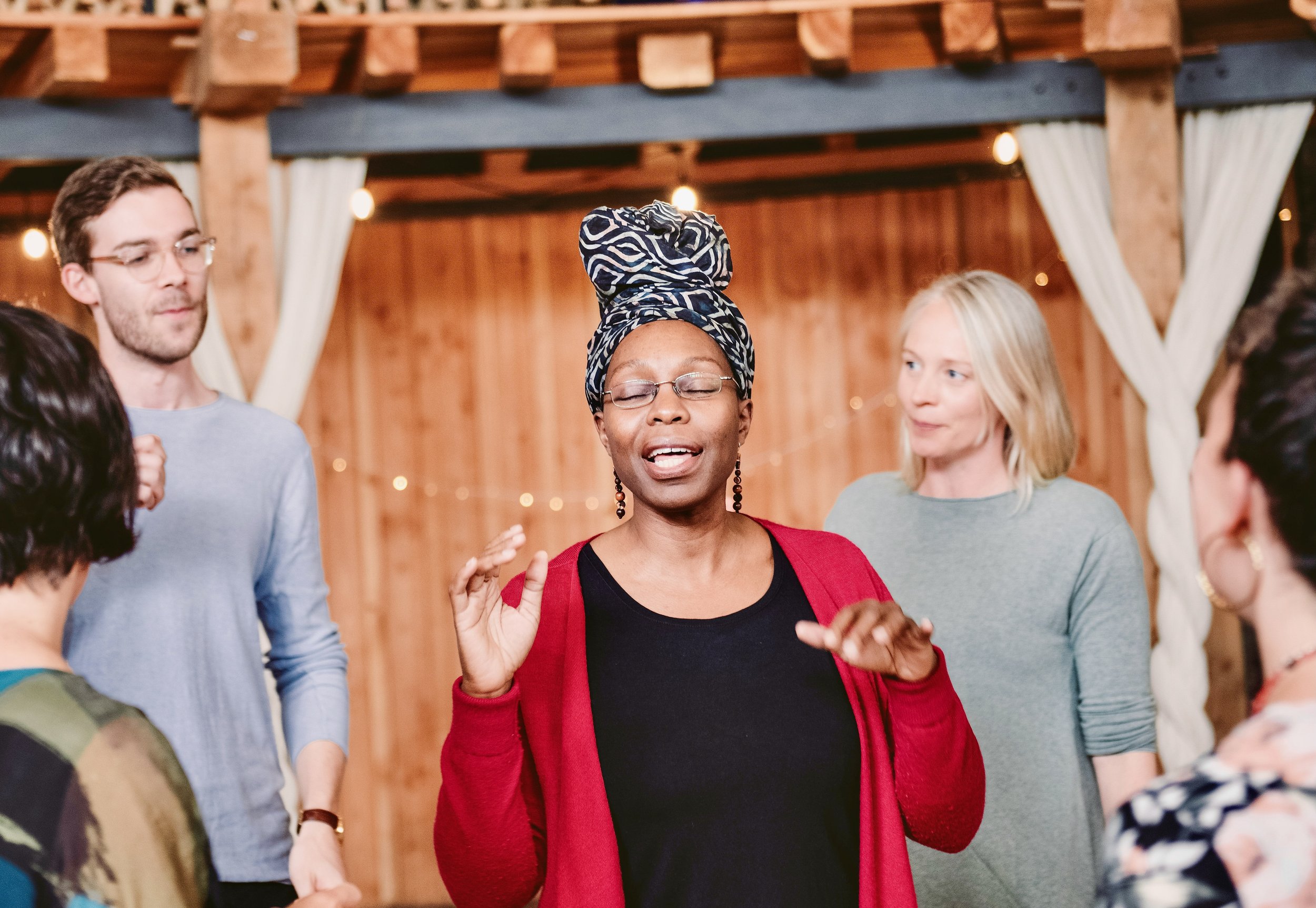



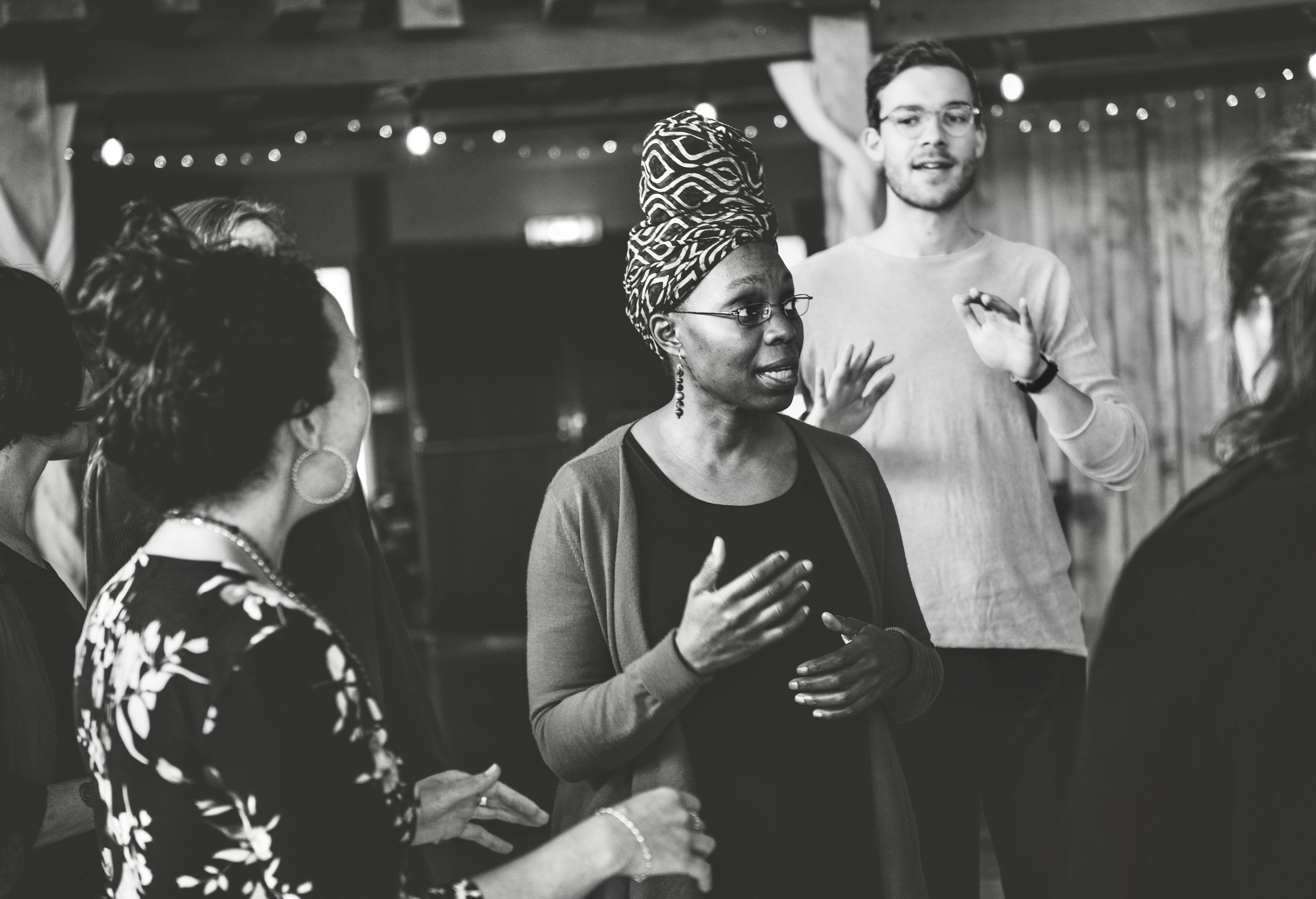

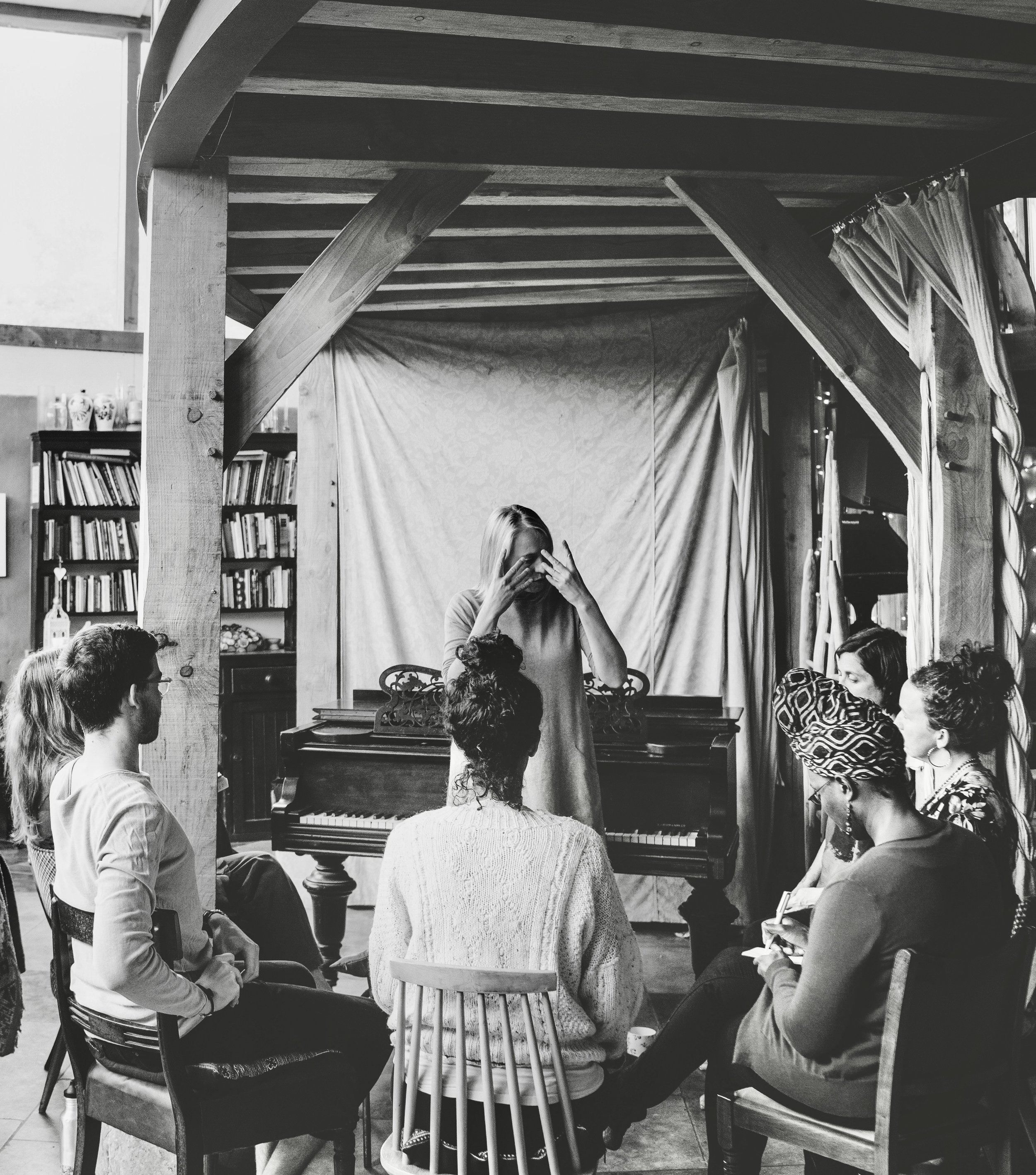



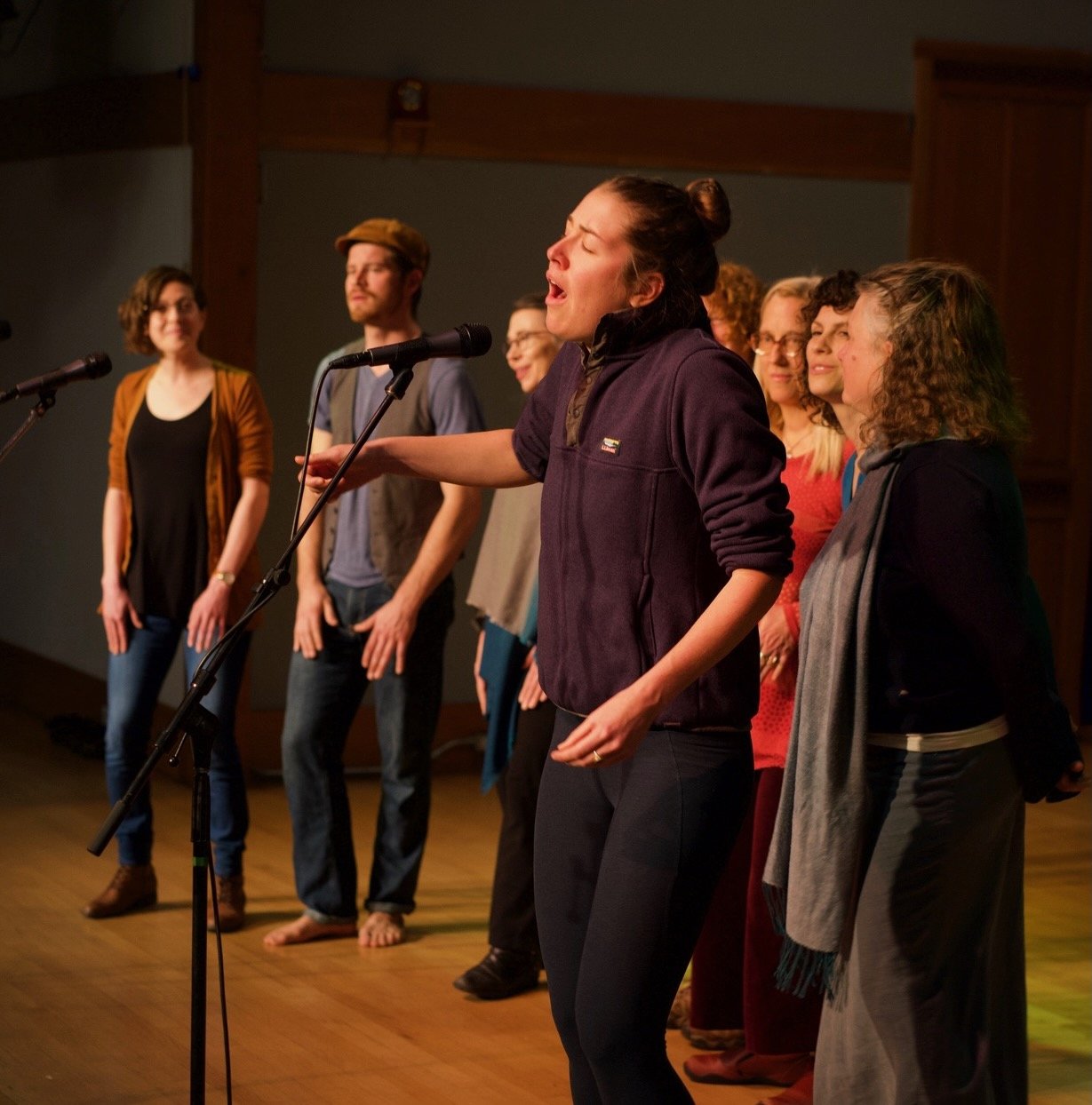




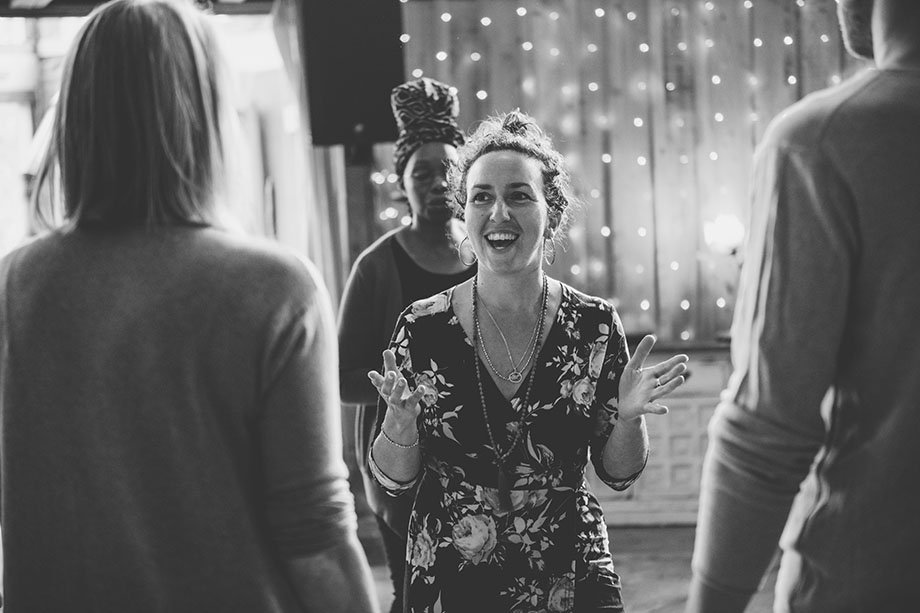



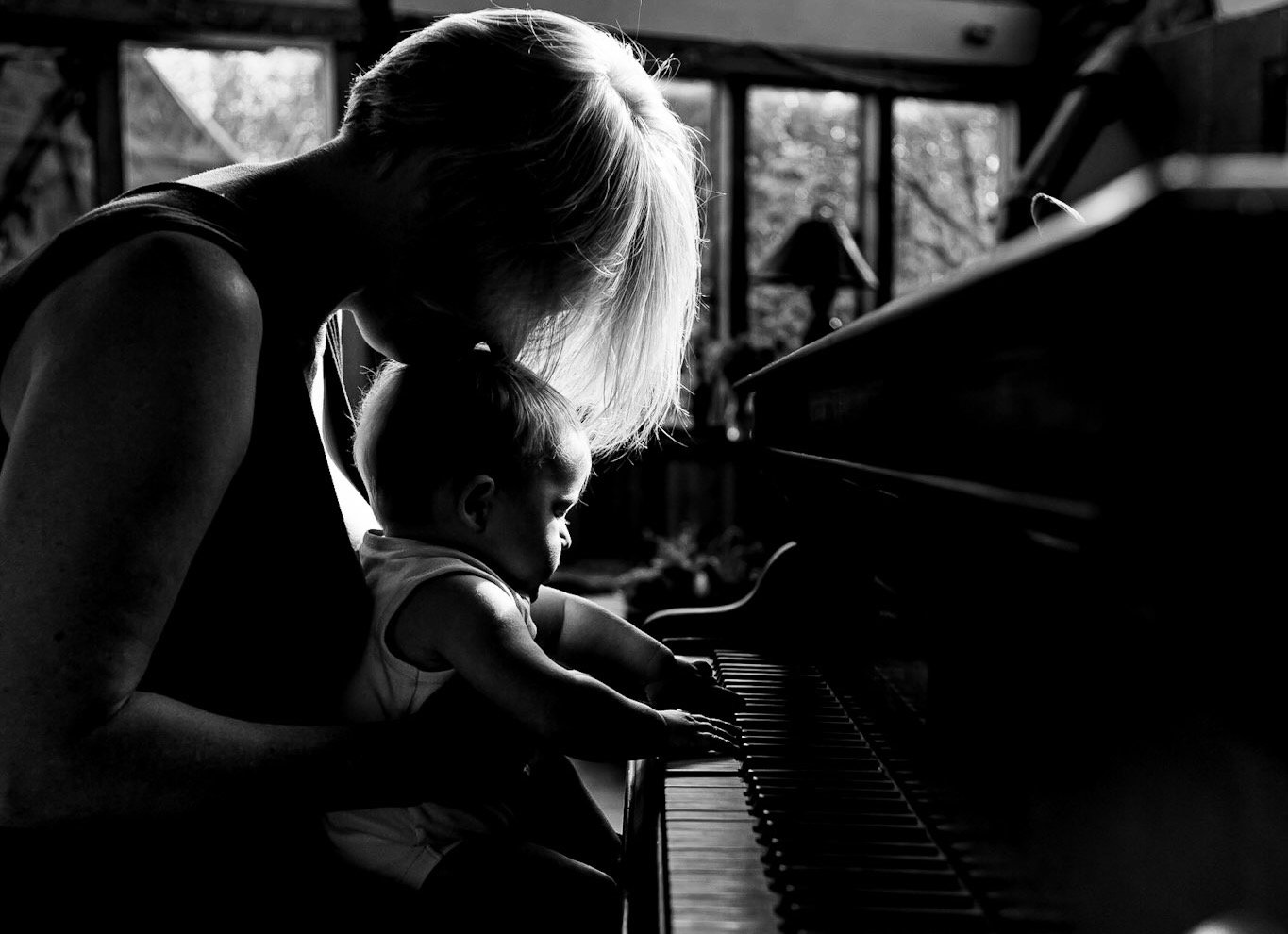
More about this pathway
Chops for Singers is a vocal musicianship pedagogy developed by Briony Greenhill from years of studying aural musicianship in India, America and France, through rigorous improvisation trainings, particularly sourced in Indian classical music and American jazz. I want to name explicitly that we are dealing with musicianship lineages of brown and black folks and give a deep bow of thanks, honouring and continual curiosity and respect for those lineages.
The pedagogy has been developed with adult singing students through the year-long course Wild Voice Solid Roots which ran yearly 2018 - 2025, and through teaching children piano 2012-2017 (with a full studio).
We work with Rhythm, Melody, and Harmony levels 1-4. I flesh out what each level covers here.
The pedagogy is currently offered in the Chops for Singers in-person courses in South Devon UK, and online in Briony’s app, Your Song.
Chops for Singers pathways are generally split into:
Beginner-Intermediate - Levels 1-2
Intermediate-Advanced - Levels 3-4
My Story
“What we know from research is that it takes 400 repetitions of an act or a learning skill, 400 times, to get one new synapse. OR, 12 repetitions with joy and laughter and you get a synapse because there's a release of a chemical dopamine." - Dr Karen Purvis
Play, called here “joy and laughter” and I believe she means play - is a great way to learn. It’s like a ceilidh where the new knowledge gets to dance with all the existing knowledge in a big circle, taking each piece by the arm and whirling it around, connecting and bonding, huffing and puffing and grinning.
Improvisation is a great form of play.
I was a musical child but felt alienated by a notation-based approach to learning music. While I frequently improvised and composed with voice and piano throughout childhood, and have been a performing lead-singer since aged 11, by my mid-teens, while I was singing to crowds of up to 1000 people with my band, I concluded that I wasn’t a musician. Musicians were the folks with grade 8 playing in the county youth orchestra, I believed.
I was 30 the first time I was helped to learn music by ear. When it happened, I saw a little door in my heart open onto an ocean of desire for this learning. Tears welled up but it wasn’t really a space for them. I sniffed them away and concentrated.
Music is structured and we can learn those structures by playing with them in guided ways with our voices, ears, and bodies. With one another, with a teacher’s guidance (in this case, mine), using certain apps, and by playing around.
Yes playing… Lots of playing!
Past Student’s Thoughts
“I’ve loved every minute of working with you and I think all instrumental students should do this. In fact I wish every person could experience this way of being. I have taught music at the conservatory level and at the early childhood level; at the John F. Kennedy Center for the Performing Arts, the Levine School of Music, The Wolf Trap Institute for Early Learning through the Arts, etc. I trained in Juilliard, New York in Dalcroze Eurhyrhmics, a Swiss body-based approach to teaching and developing musicianship, which is extremely powerful work.
But what you bring specifically to the voice is something quite unique. To me it’s body-based, soul-based, healing-based, and community / collective-oriented. Your vocal work has a spiritual dimension that Dalcroze Eurhyrhmics only hints at. It’s very beautiful. I’m quite certain that the need and the desire for what you offer is immense.”
— Marcia Daft, Music Education Specialist
“I mostly wanted to express my deep gratitude for what you do and what you have opened in my life. CVI has literally changed my life. The structures, the skills, the tools I learned in circles with you have opened up my musical and my daily life. I have been able to finally experience and be part of nourishing, exciting musical collaborations! My song writing, my teaching, my performing is transformed by my willingness to stand in the void and let music move through me.” - Emily, choir leader and singer songwriter
“I feel so much more free vocally and like I’m accessing music from a new perspective. You’re a wonderful, nurturing teacher and have so much wisdom that ripples out far beyond the vocal realm.” - Pearl, vocal improvisation teacher
“Thank you for a revelatory and transformational weekend Briony! Much has moved in me. 🙏🏻” Mark
“And then after our course was done the peer group continued…and this has been such an incredible blessing in my life. I can’t even say how much it has meant to me over the last year and a half. Those beautiful people and voices are in my heart (and I hope my life) forever.” - Anon
“The benefits of the course are rippling out in my life in subtle and crystal clear ways. I feel more confident in all areas of my life.” - Lucy
“If everyone in the world did this, there would be no problems. I’m just so high from it! I don’t know of anything, any therapy, that makes me feel this way.” - Isabel
“It’s amazing what’s there. It’s amazing what’s there when I start listening instead of leading.” - Anon
“Working with Briony has been such a gift for me. Her expertise in the field of voice work is inspirational and I have felt so supported by her generosity, strength and tenderness. As someone who also works with the voice, I have felt so ignited by her guidance and knowledge. I took part in her Vocal Improvisation Retreat and it gave me so much for my own creative path. I feel so blessed to have worked with Briony and consider her to be a fantastic leader in this field. I will continue to work with Briony as it nourishes my creative path as a musician and as a vocal facilitator.”
— Nessi Gomes, Artist, Teacher




